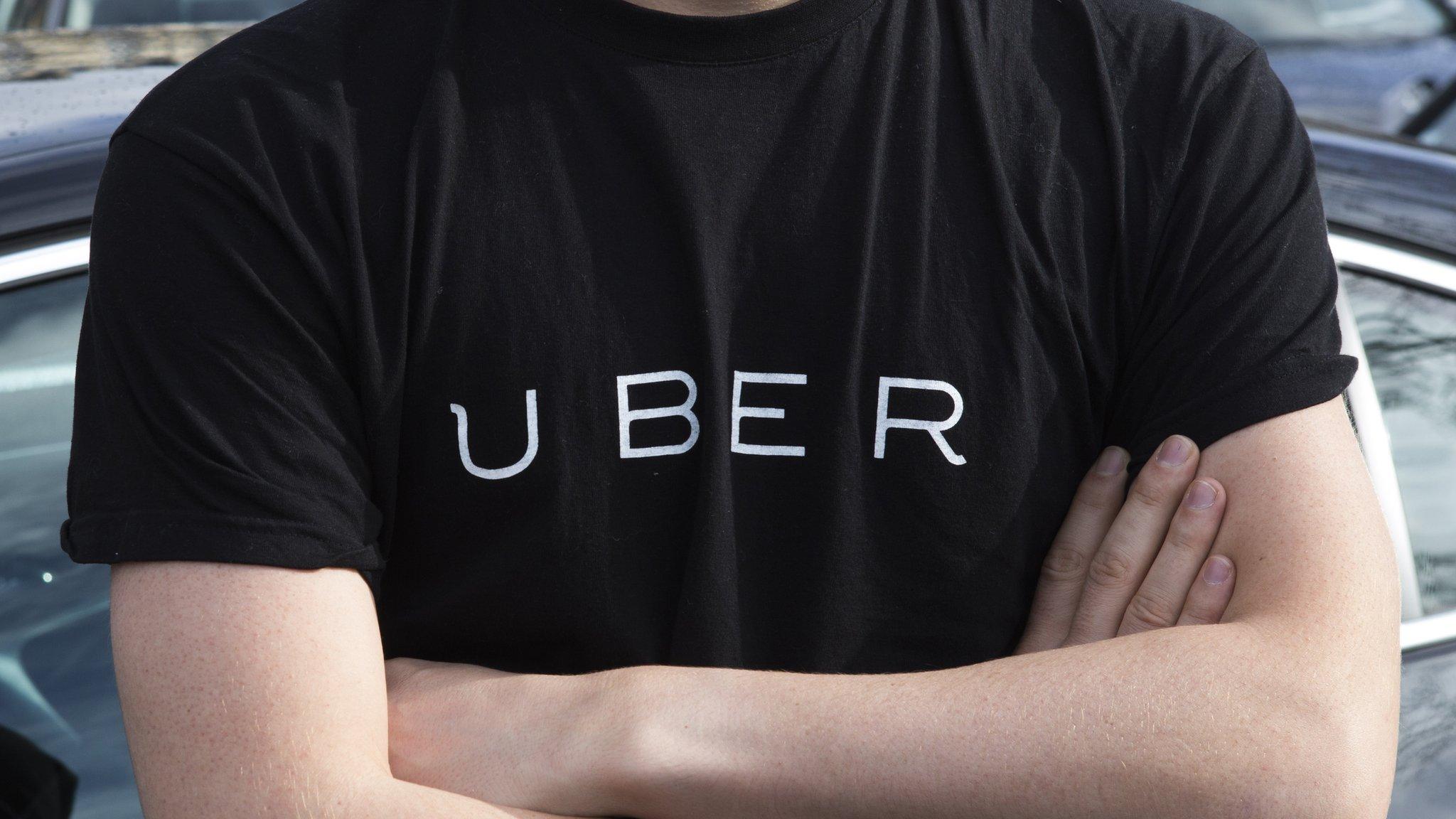Jakarta taxi drivers protest against Uber and Grab
- Published
Indonesian taxi drivers say ride-hailing apps like Uber and Grab are destroying their industry
Thousands of Indonesian taxi drivers have brought parts of the capital, Jakarta, to a standstill in a protest against transport apps.
The drivers say ride-hailing apps such as Uber and Grab have made it impossible for them to earn a living in the heavily congested city.
Some protesters were seen attacking vehicles and threatening others drivers not taking part in the strike.
The drivers have been joined by bus and "bajaj" motorbike drivers.
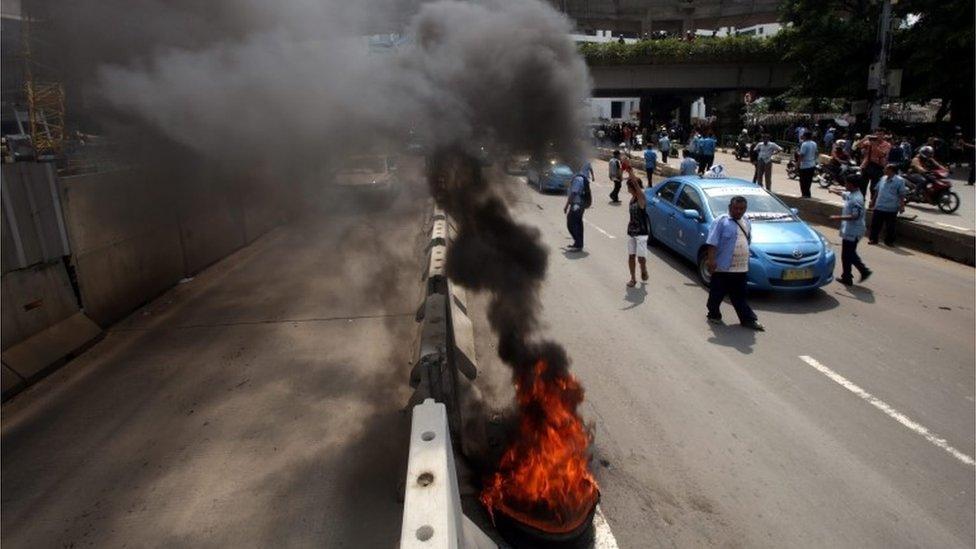
Tyres were set on fire along the road in one part of the capital
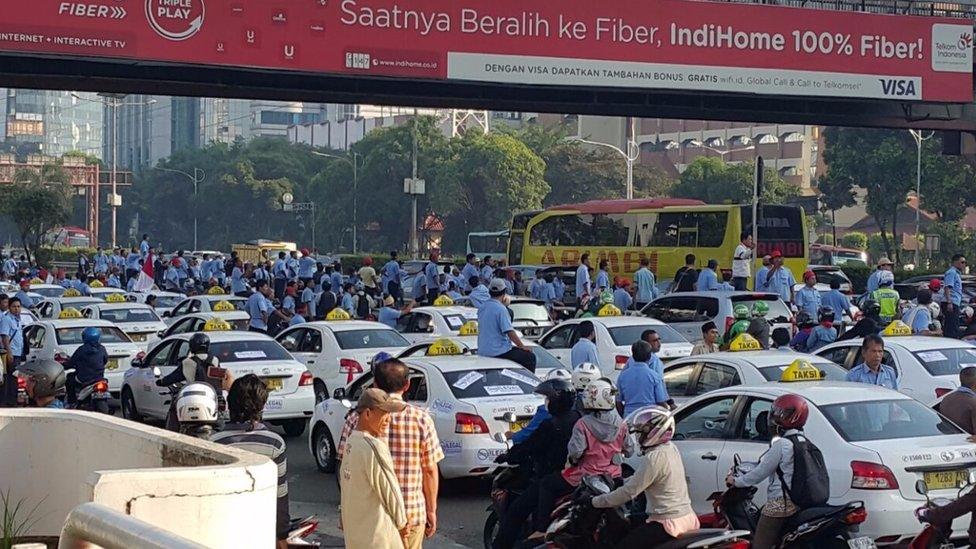
The protest was much larger than similar action taken last week
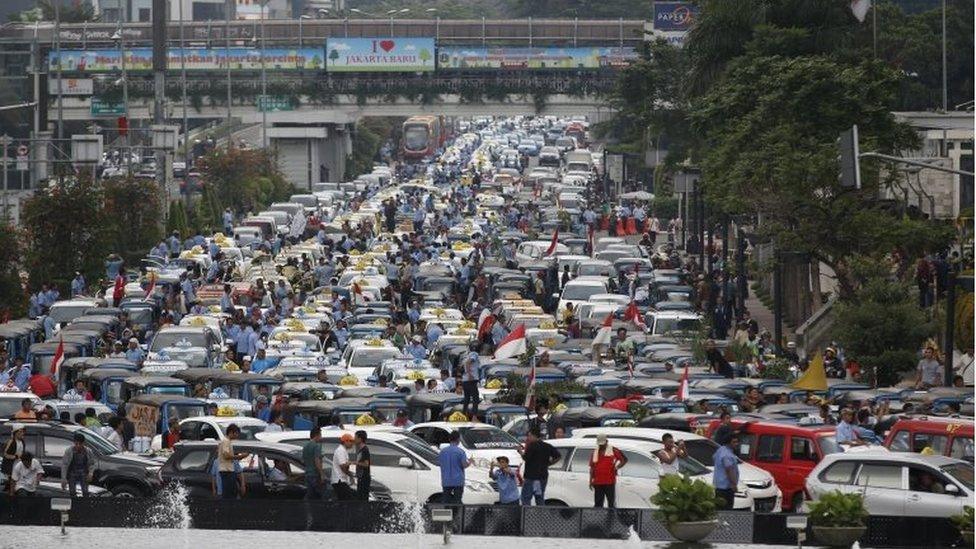
Taxis are completely blocking the road in some areas of the capital
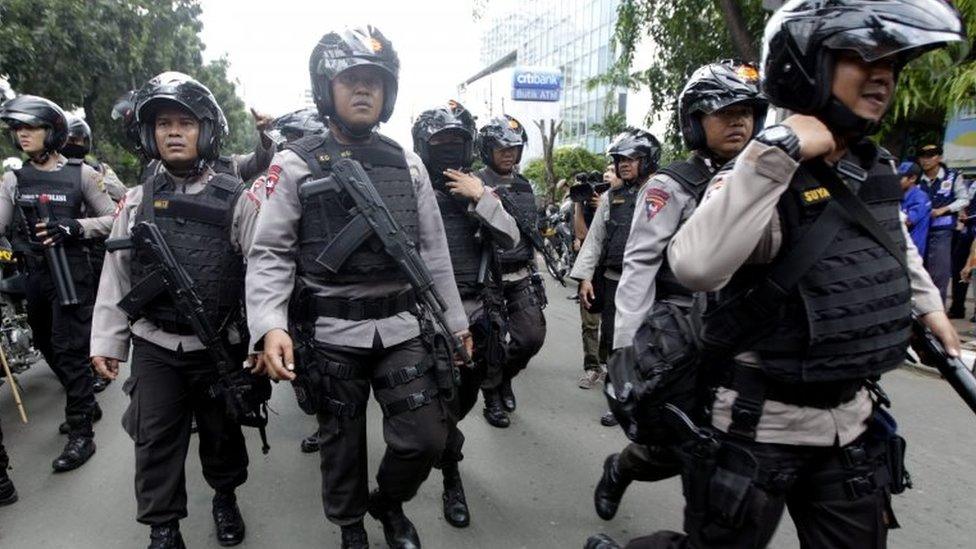
Thousands of police, some armed, have been deployed
Mobile apps like Grab and Uber have disrupted the transportation industry across Asia, and other parts of the world.
Taxi drivers say they've been disadvantaged because the apps do not face the same costs and regulations as they do.
'They are destroying us'
The BBC's Rebecca Henschke in Jakarta says Tuesday's protest is far bigger than similar action taken last week. She said it was impossible to get a taxi in the city centre.
The protesters have blocked roads outside the parliament, the city administration offices and the ministry of communication, causing massive traffic jams. Tyres were set on fire in at least one location.
Watch: People protesting transport apps in Jakarta attack a taxi for not participating
Commuters have expressed frustration.
"This protest is so terrible. They really are rude and overbearing. I was very hurt," Dewi Gayatri, who missed her flight for a business trip, told the Associated Press.
"I hope the government protects Uber, because it's so easy to order and cheaper," she said.
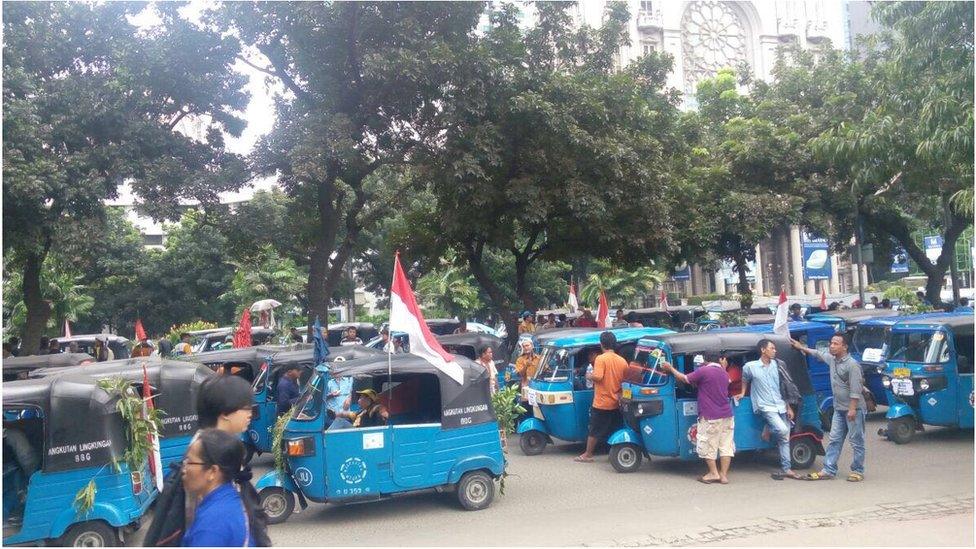
The taxi drivers have been joined by bajaj drivers
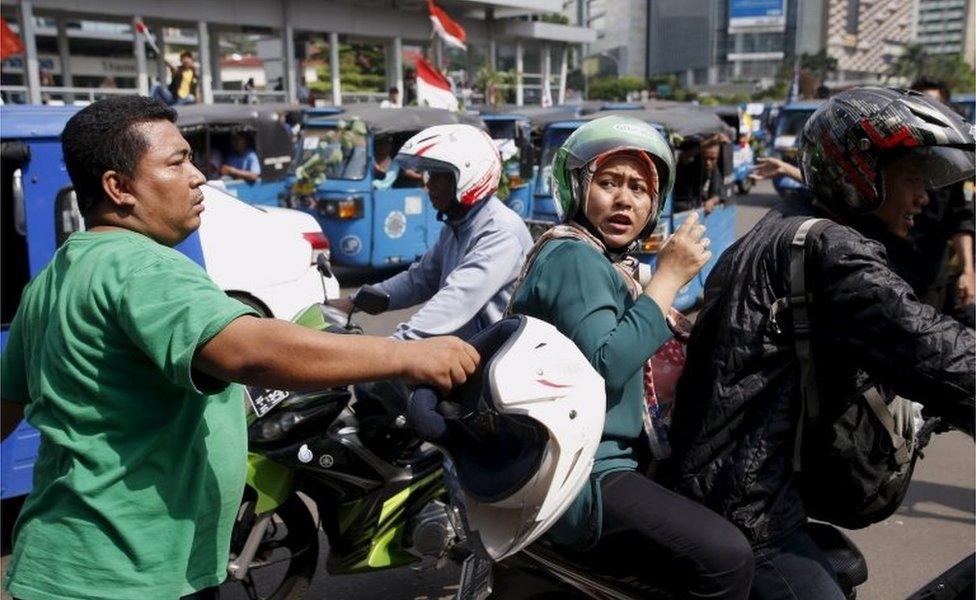
Images showed protesters angrily targeting drivers not taking part in the strike
The drivers, many of whom moved to Jakarta to work, say taxi price wars have eroded their ability to make a living.
"They are destroying us," Salahuddin, who uses one name like many Indonesians, told the BBC. "We pay tax but because Uber uses private cars they don't. I am fighting for my survival."
Ahmad Rahoyo who operates a bajaj taxi said he used to earn up to 100,000 rupiah ($10; £7) a day, "but since the apps entered Indonesia just covering my costs is hard".
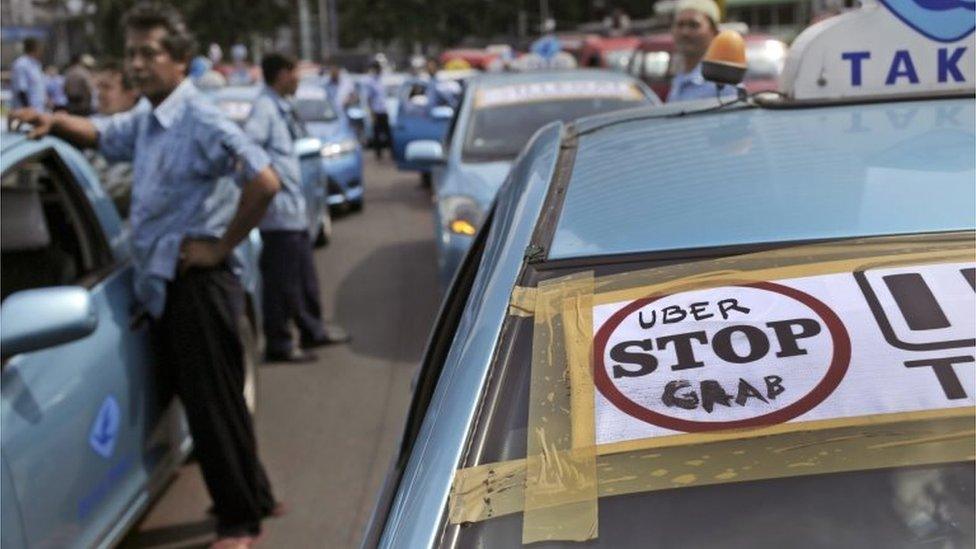
The drivers say ride-hailing apps like Uber and Grab are making it impossible for them to earn a living
One man, Hans, said he saw drivers blocking a bus lane.
"When they saw a taxi driver accepting a passenger they straight away ran over to the vehicle and told the passengers to get out of the taxi," he said.
"They threatened them with rocks. I didn't see them hit anyone but they destroyed the rear vision mirrors of one taxi."
Indonesia's government has appeared divided over the issue.
The transport ministry has said it is in favour of a ban on ride-hailing apps, since the online and mobile app-based services are not registered as public transport.
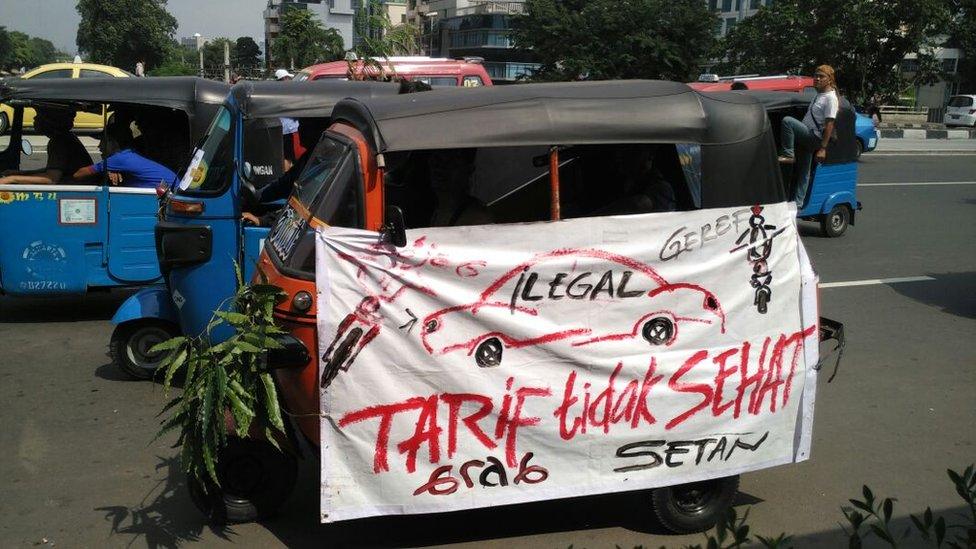
Transport apps have disrupted the transportation industry in many cities in Asia
However the communications ministry, which oversees such companies, has said they are legitimately allowed to operate.
President Joko Widodo has said new technology should be embraced and not banned.
Global resistance
Uber, which has sparked conflict with regulators and traditional taxi companies in many US and European cities as well, has expanded aggressively in recent years.
Its success has led to a slew of localised transport-app companies with similar business models.
This includes Malaysia-based Grab, which claims to be Southeast Asia's largest, and Indonesian startup Go-Jek which specialises in motorcycle taxis.
To try and claim market share, Grab for example, has offered commuters 20 free rides on their motorcycle taxi service.
- Published22 March 2016
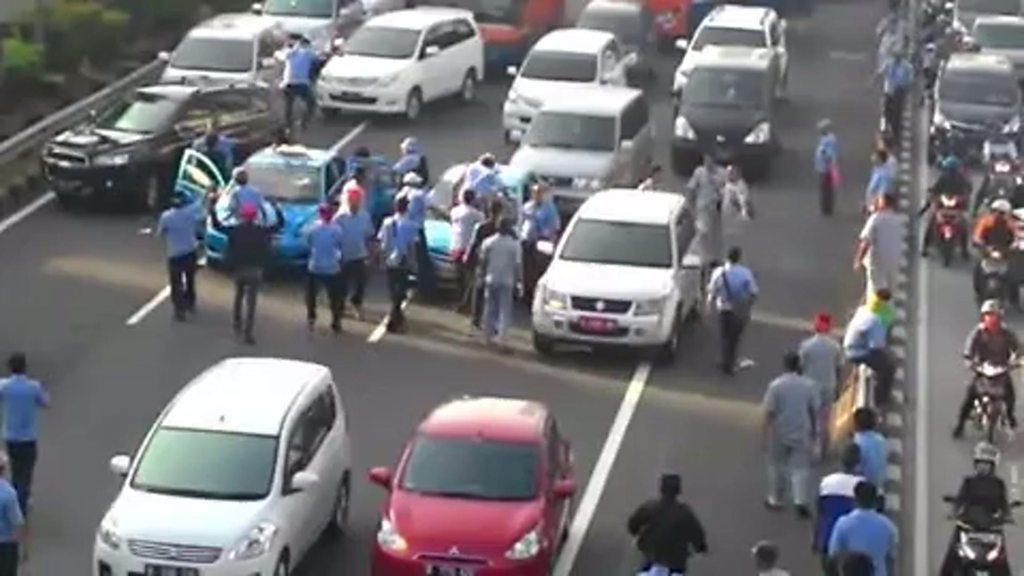
- Published5 September 2015
- Published23 August 2015
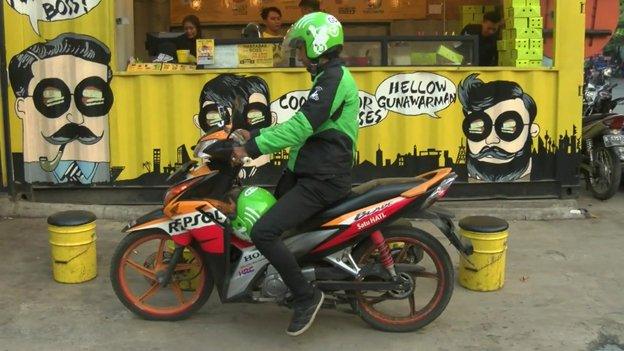
- Published2 February 2016
- Published7 March 2016
